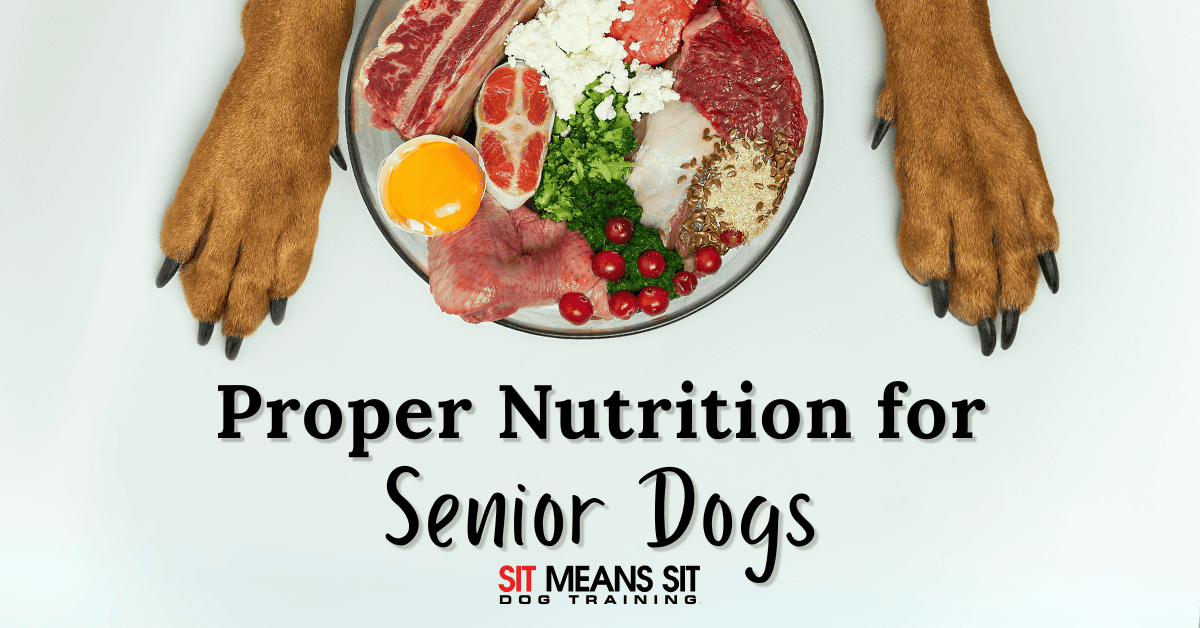Aging is a natural part of life, and just like humans, our canine companions experience changes in their nutritional needs as they get older. As these needs shift, the right diet becomes even more important to help senior dogs feel their best. Let’s break down what you need to know to support your furry friend’s nutrition in their golden years.
When are Dogs Considered Seniors?
Before adjusting your dog’s diet, it’s good to know about when they enter their senior years. The age at which a dog becomes a senior depends on factors like size, breed, and overall health. Generally, small dogs tend to live longer and don’t reach their senior years until around 7-9 years old, while larger breeds may enter this stage as early as 5-7 years old. That being said, every dog is different. Genetics, lifestyle, and medical history all play a part in how quickly a dog ages.
Proper Nutrition for Older Dogs
So, what specific dietary needs should be changed to support senior dogs’ overall health? One key factor is high-quality protein, which is essential for maintaining muscle mass and strength. Along with protein, Omega-3 fatty acids are essential to reduce inflammation and ease discomfort from arthritis and other age-related conditions. Fiber also plays a key role by aiding digestion and helping senior dogs feel full without overeating.
For dogs carrying extra weight, a low-calorie, high-protein diet can assist with gradual weight loss while still keeping them satisfied. There are many senior-specific dog foods available that are designed to meet their nutritional needs and take the guesswork out of dog owners’ decision-making. These foods often include joint-supporting ingredients like glucosamine and chondroitin to help with your dog’s mobility.
Ensuring Proper Hydration
Hydration is just as important as food! Older dogs may not drink as much water as they should, which can lead to dehydration and kidney issues. Here are some tips to encourage Fido to keep up their water intake:
- Keep multiple water bowls around the house, especially near their favorite resting spots
- Offer canned food, which contains more moisture than dry kibble
- Use a dog water fountain to entice them with fresh, flowing water
- Frequently clean out your pup’s water bowl to remove any debris that might keep them away
Keeping Older Dogs at a Healthy Weight
As dogs age, their metabolism slows down, and they typically have reduced activity levels. As a result, dogs are more prone to weight gain and obesity in their golden years. The good news? You can help keep your pup at a healthy weight with a few simple adjustments. A simple way to start is with portion control and smart food choices.
Senior dogs require fewer calories, but the calories they do consume should be high-quality and packed with essential nutrients. When giving your furry friend treats, steer clear of processed dog treats or table scraps that contain excessive amounts of calories and very little nutrition. Instead, opt for low-calorie options full of vitamins like carrots, apples, or berries. And if you’re unsure whether your dog is at their ideal weight or what to feed them, your vet can offer guidance to keep your pup feeling their best.
Do Senior Dogs Need Supplements?
Some senior dogs can benefit from supplements, especially when it comes to joint health. Many senior dog foods already include glucosamine and chondroitin, but your pup may benefit from taking these supplements if their food doesn’t have them. If you’re considering adding a supplement to your dog’s diet, make sure it’s specifically formulated for dogs.
Another great supplement to add to your senior dog’s diet is fish oil. These supplements come in many dog-friendly forms, including dog treats, capsules, liquid oil, or chewable supplements. In addition to helping with joint pain, Omega-3 fatty acids can help reduce inflammation, maintain a healthy coat, and keep your senior dog’s brain sharp. As always, check with your vet before adding anything new to your dog’s diet.
With proper nutrition, you can help your senior dog stay happy and healthy well into their golden years. Caring for a senior dog may require a bit more time and care, but it’s well worth it. After all, our loyal four-legged companions deserve nothing but the best!
Check Out These Posts for More Senior Dog Tips!
The Benefits of Adopting a Senior Dog
Tips for Making Your Home More Accessible for Your Senior Dog

